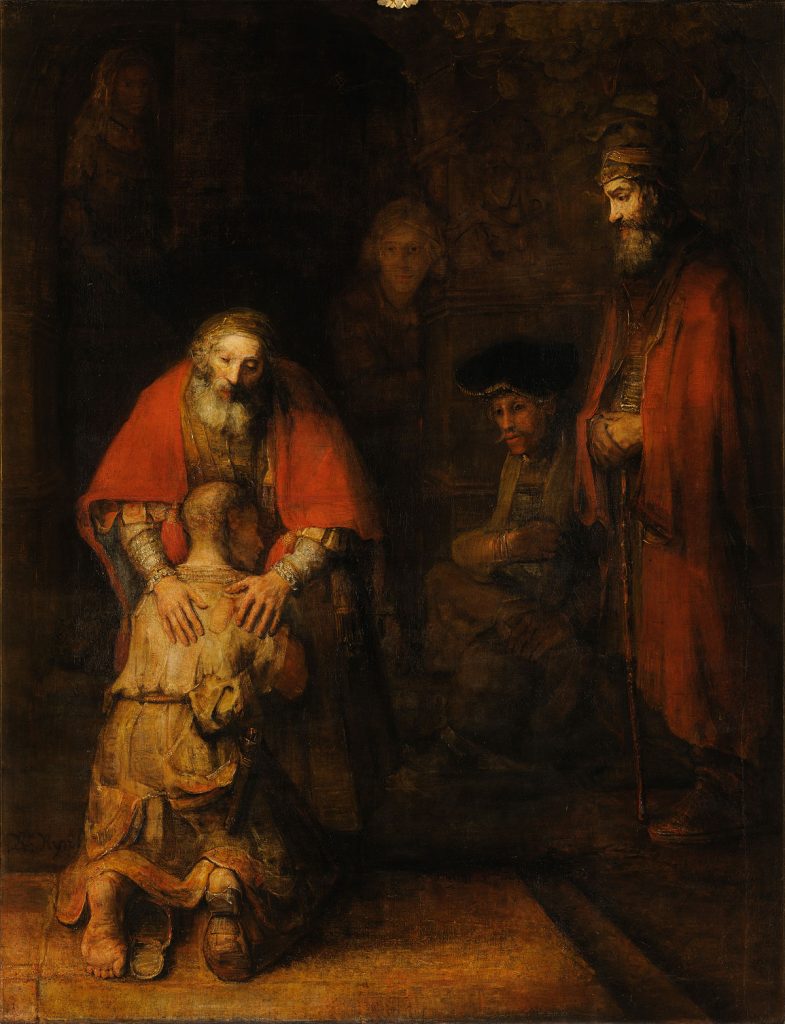This Tuesday we begin our Lenten discussion of Fr. Henri Nouwen’s book The Return of the Prodigal Son: A Story of Homecoming. We will discuss the Prologue and Chapters 1 and 2 on the leaving of the younger son. In looking at the younger son’s request in Luke 15:12, I have generally failed to understand the gravity of the request. I have attached an excerpt from Kenneth Bailey’s book The Cross and the Prodigal: Luke 15 Through the Eyes of Middle Eastern Peasants. pp.40-47. Please take the time to read chapter 2 “The Death Wish” of Bailey’s book. It will be part of our discussions on Tuesday. (We have previously used portions of Bailey’s book “Jesus Through Middle Eastern Eyes.” Bailey’s background is in Arabic studies and he spent his 40-year career living and teaching in seminaries in Cairo, Beirut, Jerusalem, and Cyprus.)
According to Bailey, the request by the younger son is tantamount to him asking that his father be dead. In the ancient world, as in the modern world, advances on inheritances were not unheard of. However, when an heir received an advance he merely had the right of possession of the assets and not disposition of the assets. The heir additionally held the property in trust for the support of the parent. The younger son, however, didn’t ask for his inheritance, because that would come with strings attached. Rather he asked for his “ousia.” Ousia is a Greek word meaning “substance” or “property.” A loose translation would be “stuff.” Although this is the only place the word occurs in the Scriptures, it is the key word used in the Nicene Creed where we affirm that Jesus Christ is “of one Being (ousia) with the Father.” Therefore the younger son is not merely wishing his father dead so that he can take ownership of his stuff, but to be cut off from what it means to be called a son in exchange for mere cash. In the Scriptures, a person’s lineage is important (Gen. 5, 10-11; Matt. 1) and the younger son forsakes that lineage. Additionally, as Bailey points out, the father would have given the son a portion of his wealth which would have been primarily real property, flocks, or grains. To add insult to injury, the younger son, however, necessarily takes this wealth amassed by his father and his ancestors and sells the same within a few days. As Bailey says, in his forty years of living in the Near East, he has never come across this type of situation because of its extraordinary depravity.
Dinner is at 6. The menu is roasted chicken. Discussion about 6:45. Hope to see you here. (You don’t have to read everything to join.) Please invite a friend.
My people have been lost sheep; their shepherds have led them astray, turning them away on the mountains; from mountain to hill they have gone, they have forgotten their fold. All who found them have devoured them, and their enemies have said, “We are not guilty, for they have sinned against the Lord, their true habitation, the Lord, the hope of their fathers.”
Jeremiah 50:6-7

